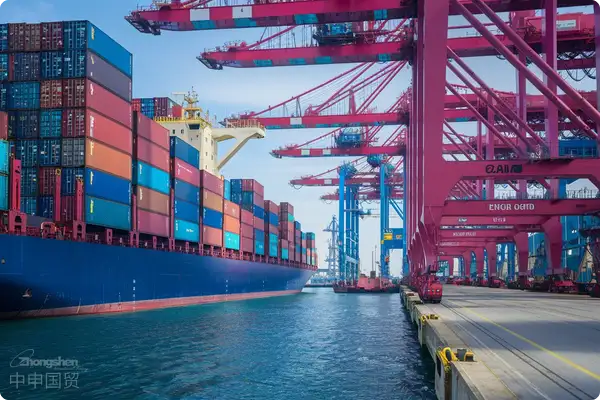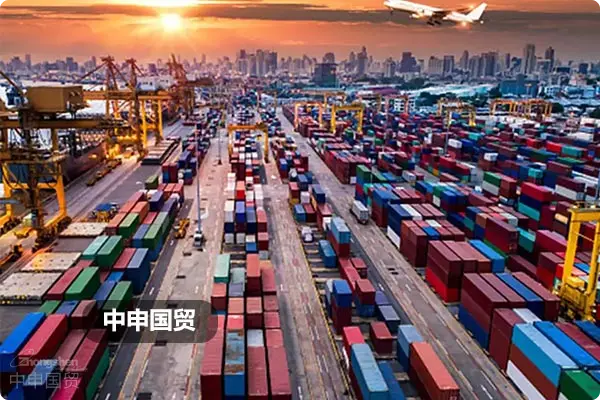- Shanghai Zhongshen International Trade Co., Ltd. - Two decades of trade agency expertise.
- Service Hotline: 139 1787 2118
In 2023, a company in the Yangtze River Deltaforeign tradelost 1.27 million RMB in tax refunds due to incorrect HS code filing; in the same year, a company in the Pearl River Delta directly lost its tax refund eligibility due to late declaration—Export DrawbackThe margin for error in declarations is lower than imagined.
With 20 years of experience in foreign trade agency, weve found that 90% of tax refund risks lie in details companies assume are no problem. This article will strip away the gentle facade of the declaration process, using painful case studies to show how professional methods can safeguard your profit lifeline.,

I. Five Common Errors in Export Tax Refund Declarations
Incomplete or incorrect documentation
Problem Manifestations:
- Missing or inconsistent core documents such as customs declarations, VAT invoices, and bills of lading (e.g., discrepancies in product names, quantities, amounts, or units).
- Document upload formats not meeting tax authority requirements (e.g., unsynchronized electronic port data, unverified invoices).
Consequences:
Tax refund applications are rejected, requiring repeated supplementary materials, delaying refunds by 3-6 months or even resulting in loss of refunds.
Avoidance Methods:
- Establish a document verification process: Immediately after export, verify the consistency of the product name, quantity, and amount across customs declarations, invoices, and bills of lading.
- Utilize digital toolsAutomatically verify the logical relationships of documents and generate standardized declaration files through the ERP system or tax management software of foreign trade agencies.
Incorrect commodity code classification (HS Code)
Problem Manifestations:
- When enterprises self-classify HS codes, errors may occur due to insufficient understanding of customs tariff rules (e.g., confusing similar products or neglecting material/usage differences).
Consequences:
If the HS code comparison between customs and the tax bureau fails, minor cases may require re-declaration, while severe cases may involve suspected tax fraud due to classification errors.
Avoidance Methods:
- Engage professional classification servicesForeign trade agencies can provide customs pre-classification advice or verify codes through the classification assistance system of the Single Window platform.
- Reference historical dataPast customs declaration and tax refund records of similar products can serve as classification references to avoid subjective judgments.
Late declaration leading to loss of tax refunds
Problem Manifestations:
- Failure to declare within the period specified by the tax bureau (generally before the VAT filing deadline in April of the following year after export) or untimely submissionA complete export agency agreement should be attached with:may result in inability to claim tax refunds.
Consequences:
Late declaration directly disqualifies tax refund eligibility; overdue foreign exchange receipts (usually within 12 months after export) require conversion to tax-exempt or taxable treatment.
Avoidance Methods:
- Set declaration node remindersForeign trade agencies typically provide a Tax Refund Declaration Schedule to track each orders export date, foreign exchange receipt deadline, and declaration cutoff date.
- Plan cash flow in advanceFor orders with long payment terms, negotiate advance payments orL/Cclauses with clients to ensure timely foreign exchange receipts.
Loopholes in input invoice management
Problem Manifestations:
- Non-compliant VAT special invoices issued by suppliers (e.g., abbreviated product names, incorrect tax rates, blurred stamps).
- Factory invoices not certified before tax refund or mistakenly marked as deduction purpose.
Consequences:
Input invoices deemed invalid by the tax bureau, making corresponding tax amounts non-refundable.
Avoidance Methods:
- Supplier Qualification ReviewScreen compliant suppliers through foreign trade agencies and specify invoice issuance requirements in contracts.
- End-to-end invoice monitoringFrom invoice acquisition to certification, dedicated agency teams review details such as stamps, product names, and tax amounts.
Ignoring policy changes and regional rules
Problem Manifestations:
- Failure to monitor adjustments in export tax rebate rates, updates to customs declaration form rules (e.g., RCEP origin rules), or changes in local tax audit priorities.
Consequences:
Delayed policy understanding leads to declaration materials not meeting the latest requirements, even being listed as high-risk audit targets.
Avoidance Methods:
- Subscribe to policy alert servicesProfessional foreign trade agencies provide real-time interpretations of customs, tax, and foreign exchange policies for clients.
- Participate in tax compliance trainingRegularly attend online/offline training sessions organized by agencies to learn practical cases and risk points.
II. Foreign TradeExport RepresentationThe Core Value of Services—How to Leverage Professional Teams to Mitigate Risks
For SMEs or enterprises new to foreign trade, handling export tax refunds independently requires significant manpower and has low error tolerance. The core value of foreign trade agency services lies in:
Internationally - recognized Safety StandardsDocument Compliance Hosting:
- The agency team handles document review, logical verification, and data matching to ensure the three flows unification of documents, goods, and funds.
Regional Mandatory CertificationsTax Planning in Advance:
- Design optimal tax refund solutions based on product categories and trade methods (general trade/processing trade), such as utilizing foreign trade comprehensive service enterprises (FTSE) for tax refund processing to shorten payment cycles.
Cultural and Religious NormsRisk Emergency Handling:
- In case of customs document deletion, modification, or tax bureau inquiries, the agency can provide support including supplementary material preparation and on-site communication to reduce corporate penalty risks.
Export tax refunds are never a mechanical process of filling forms and submitting documents, but rather a precision battle against policy changes, document logic, and time. While competitors struggle with repeated document requests, professional agencies achieve approval upon submission through digital systems; when rivals face operational shutdowns due to tax audits, compliant companies leverage refunds to secure new orders.
Your choice determines whether tax refunds become a cost black hole or a profit engine. Dont let tomorrows you pay for todays close enough.,
This article aims to help foreign trade enterprises avoid declaration pitfalls and maximize policy benefits. For customized solutions, please contactZhongShen International Tradeprofessional team consultation.
Related Recommendations
? 2025. All Rights Reserved. Shanghai ICP No. 2023007705-2  PSB Record: Shanghai No.31011502009912
PSB Record: Shanghai No.31011502009912









